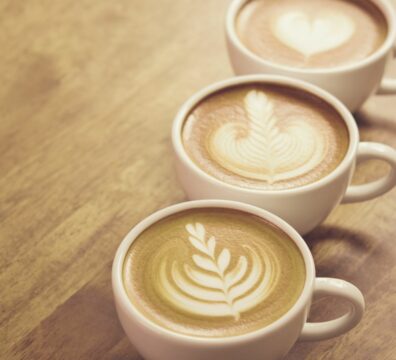There is a lot of information about how lifestyle and diet can affect fertility. However, when it comes to the consumption of coffee, latte macchiato or espresso, there are often contradictory statements.
The influence of caffeine on female fertility
Studies show that excessive coffee consumption can lead to longer waiting times for pregnancy in women. But is caffeine alone to blame? New findings suggest that caffeine can reduce muscle activity in the fallopian tubes, which could indeed impair fertilisation. Research tries to find out more.
Caffeine during pregnancy
During pregnancy, caffeine can cross the placental barrier and affect the natural biorhythm of mother and child. High caffeine consumption is associated with an increased risk of early pregnancy loss and lower birth weight. Pregnant women are therefore advised to avoid caffeine completely.
The influence of caffeine on male fertility
Excessive coffee consumption can affect sperm quality in men. However, it is controversial whether it is the caffeine itself or the associated unhealthy lifestyle that causes the negative effects.
Recommendation for coffee consumption when trying to conceive
To be on the safe side, limit coffee consumption to around 3 cups corresponding to app. 300 mg caffeine per day during preconception and to avoid it completely during pregnancy. Remember that coffee is not the only beverage that contains caffeine:
Cup of filter coffee (125 ml): 80-120 mg caffeine
Cup of instant coffee (125 ml): 100 mg caffeine
Cup of decaffeinated coffee (125 ml): 3 mg caffeine
Espresso (50 ml): 50 -100 mg caffeine
Latte macchiato (with 1 espresso, 200ml in all): 50 -100 mg caffeine
Cup of black tea (250 ml): 70 mg caffeine
Cup of green tea (not herbal tea, 250 ml): 66 mg caffeine
Cup of cocoa (250 ml): 16 mg caffeine
Energy drink (250 ml): 80 mg caffeine
Glass of coke (200 ml): 30 -70 mg caffeine
Dark chocolate (100g): 10 – 80 mg caffeine
Milk chocolate (100g): 15 – 20 mg caffeine
Source: German Society for Nutrition/ Stiftung Warentest
If you want to reduce your coffee consumption, think about what needs coffee really satisfieds ? Are there alternatives that could be just as good for you? For example: Do you need coffee to wake up? Maybe it’s time to take care of your sleep? Is having a cup of coffee a cherished ritual that offers you relaxation in your hectic everyday life? Are there any alternatives?

